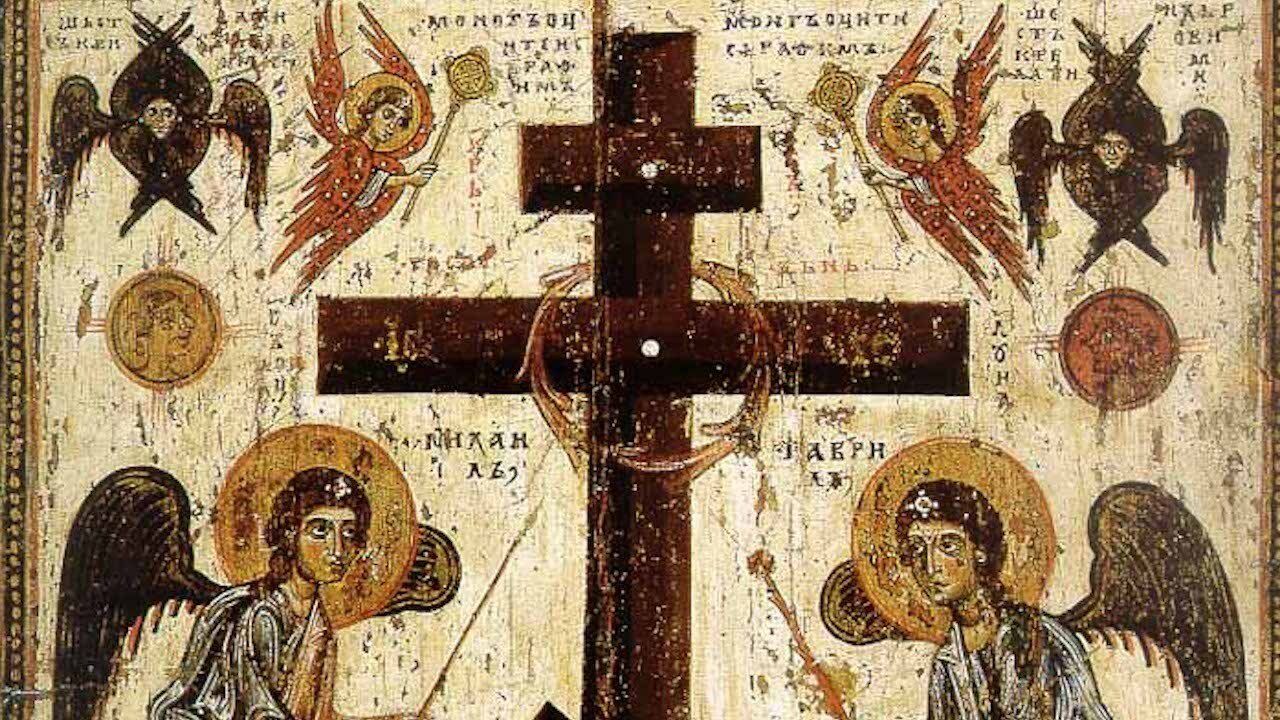The Cross Imprinted on the Gift of the World
by Fr Dumitru Staniloae
Feast of St Pachomius the Great, Founder of Coenobitic Monasticism
Anno Domini 2021, May 15

The world is a gift of God, but the destiny of this gift is to unite man with God who has given it. The intention of the gift is that in itself it should be continually transcended. When we receive a gift from somebody we should look primarily towards the person who has given it and not keep our eyes fixed on the gift. But often the person who receives a gift becomes so attached to the gift that he forgets who has given it to him. But God demands an unconditional love from us for He is infinitely greater than any of the gifts which He gives us; just as at the human level the person who gives us a gift is incomparably more important than the gift which he has given and should be loved for himself and not only on account of his gift. In this way every gift requires a certain cross, and this cross is meant to show us that all these gifts are not the last and final reality. This cross consists in an alteration in the gift, and sometimes even in its entire loss.
We can see many meanings in this cross which is imprinted on the gift of the world which God gives to us. St. Maximus the Confessor said that “all the realities which we perceive with the senses demand the cross”; and “all the realities which we understand with our mind have need of the tomb.” To these words of St. Maximus we can add this: that man in his fallen condition feels the dissolution of the present world and of his own existence as a pain, a suffering; feels it as a sorrow because he has bound the affections which form part of his very being to the image of this world which is passing away. This attachment to the things of this world is felt particularly strongly by those who do not believe that there is any further transformation of this world after the life which we now know.
The Christian, however, carries this cross of the world and of his own existence not only more easily but with a certain joy, for he knows that after this cross there follows an imperishable life. With this faith he sees the world as crucified and dead to him, and he and all his tendencies as crucified and dead to the present world. This does not mean that he is not active in this world, and that he does not exercise his responsibility towards it; but he works in order to develop in the present state of the world, destined as it is to dissolution and death, the germs, the seeds of its future resurrection. He longs that this world, and his own existence in it, may be crucified as Christ was crucified; that is to say he wishes voluntarily to undergo the suffering of the cross with the hope of resurrection into a higher world, an imperishable world, a resurrection which is truly with and in Christ.
The Christian does not see the transitory nature of the structures of this world and of his own existence as leading towards a crucifixion without hope, or as moving towards a definitive, final death. He sees this situation and he lives it, anticipating the crucifixion at its end with hope, the hope of a higher and unchanging life.
However, it is not only the Christian who lives his own life and that of the world in anticipation of their crucifixion, lives them as nailed to the cross of the passing away of their present form; everyone inevitably does so. For everyone knows that those we love will die, and this certainty introduces a sorrow into the joy of our communion with them. Everyone knows that the material goods which one accumulates are transitory, and this knowledge casts a shadow on the pleasure one has in them. In this sense, the world and our own existence in it are a cross which we shall carry until the end of our earthly life. Never can man rejoice wholly in the gifts, the good things, and in the persons of this world. We feel the transitory nature of this world as a continual cross. But Christians can live this cross with the hope of the resurrection, and thus with joy, while those who have no faith must live this experience with increasing sadness, with the feeling that existence is without meaning, and with a certain despair which they cannot altogether alleviate.
*Excerpted from Staniloae, The Victory of the Cross (Oxford: SLG Press, 2001), pp. 1-3. Available for purchase from Eighth Day Books.
Contribute to Cultural Renewal by Sharing on Your Preferred Platform
In an isolating secularized culture where the Church's voice is muffled through her many divisions, Christians need all the help they can get to strengthen their faith in God and love toward their neighbor. Eighth Day Institute offers hope to all Christians through our adherence to the Nicene faith, our ecumenical dialogues of love and truth, and our many events and publications to strengthen faith, grow in wisdom, and foster Christian friendships of love. Will you join us in our efforts to renew soul & city? Donate today and join the community of Eighth Day Members who are working together to renew culture through faith & learning.









